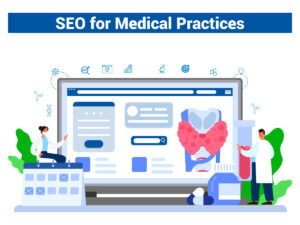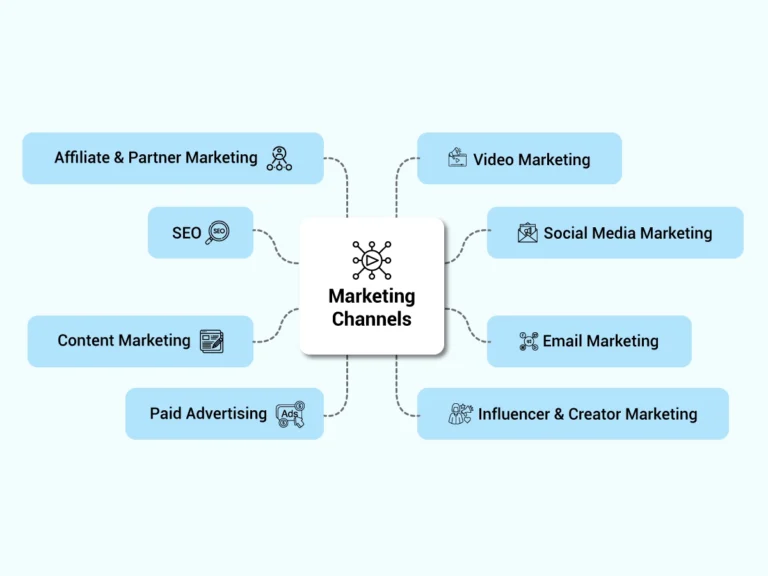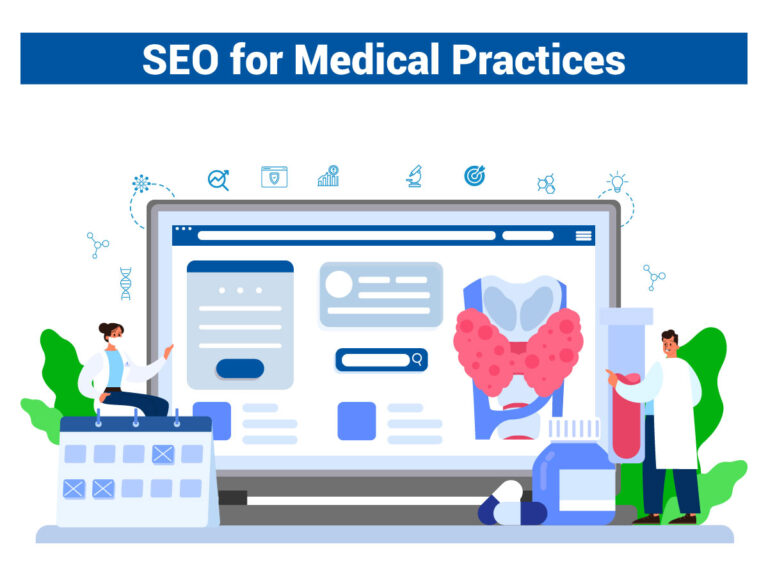Have you ever Googled something and thought about why certain websites pop up first on search engine results pages while others linger in the shadows?
How do they do it, and more importantly, how can you?
Well, this is where the Search Engine Optimization comes to the roleplay!
Whether you are a business owner, blogger, or just a digital enthusiast, learning how to do SEO yourself is indeed a game-changer.
After all, from reaching the right audience to your website climbing the ladder of search rankings, the list goes on!
In the following article, we are going to have a detailed discussion on SEO DIY, it’s importance and how to do SEO yourself so that you always stay on the frontline.
Without further ado, let’s get started:

Understanding SEO Basics
Before beginning to discuss how to do SEO yourself, let’s first understand the basics of SEO. SEO, or Search Engine Optimization, is the key to making your online content visible and discoverable more. At its core, SEO is all about understanding what people are searching for and making sure that your website provides valuable and relevant information.
So, how does it work? What to do?
Well, start by identifying relevant keywords related to your content. These are the words or phrases users might type into a search engine. Hence, try to incorporate these keywords naturally into your content, titles, and meta descriptions.
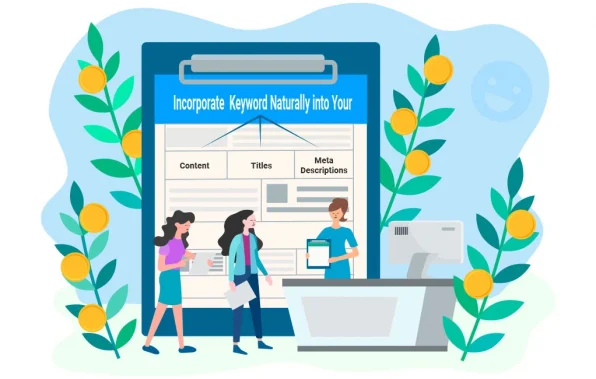
Next up, we have the content. One thing, quality content is extremely crucial. Because search engines always prioritize content that is informative, engaging, and adds value to users. Therefore, always regularly update your content to keep it fresh and relevant more than ever.
Afterwards, optimize your website’s structure and make it user-friendly. Ensure easy navigation, quick loading times, and mobile responsiveness – search engines favor websites that offer a seamless user experience.
Build links from reputable sites to yours. This, in return, will help to establish credibility and authority in the eyes of search engines.
In short, SEO is about aligning your website with what users are searching for and providing an excellent user experience. By mastering these basics, you enhance your chances of ranking higher in search engine results and attracting the right audience to your content.
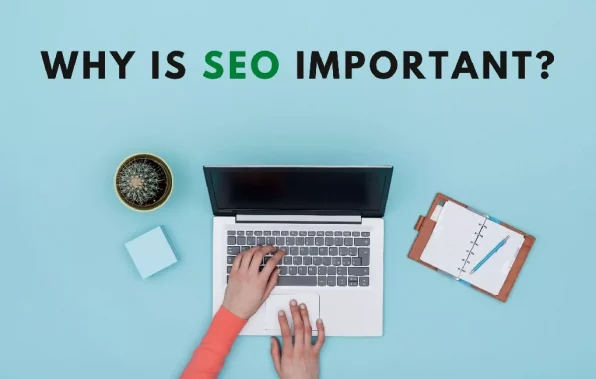
Why is SEO Important?
Whenever we need information, what do we do?
Of course, the first thing we do is take our phone and search for the required information on the search engines. Hence, if you are a business owner, having a strong online presence is extremely crucial for businesses and individuals alike.
This is where SEO comes to the act!
Here’s why that matters:
• Increased Visibility: SEO is all about ensuring your website ranks higher in search results. When your site appears on the first page, or even better, in the top positions, it becomes more visible to potential visitors. People tend to trust and click on the top results, making SEO a critical factor in your online visibility.
• Targeted Traffic: Effective SEO involves optimizing your content with relevant keywords and phrases. This optimization ensures that the people finding your website through search engines are actively looking for the products, services, or information you provide. This targeted traffic is more likely to convert into customers or subscribers.
• Credibility and Trust: Websites that appear at the top of search results are often perceived as more trustworthy and credible. By consistently ranking well, your site can build a reputation as an authoritative source in your industry, fostering trust with your audience.
• Cost-Effectiveness: While online advertising can be expensive, SEO offers a cost-effective alternative. Unlike paid advertising, which requires ongoing financial investments, SEO efforts can yield long-term results. Once you establish a strong online presence through SEO, it can continue to drive organic traffic without the need for constant ad spend.
• Competitive Edge: In a crowded digital landscape, SEO can give you a competitive advantage. If your competitors are investing in SEO and you are not, you risk falling behind. Conversely, a well-executed SEO strategy can help you outperform your rivals and capture a larger share of the market.

• Mobile Optimization: With the increasing use of mobile devices, having a mobile-friendly and responsive website is vital. SEO involves optimizing your site for mobile, ensuring that you provide an excellent user experience across all devices.
• Local SEO: For businesses with physical locations, local SEO is paramount. It helps you target customers in your area, making it easier for people in your area to find and visit your store.
• Data and Analytics: SEO tools provide valuable data and insights about your website’s performance. You can track metrics like organic traffic, click-through rates, and user behavior. This data is invaluable for making informed decisions and continually improving your online strategy.
• Adaptation to Algorithm Changes: Search engines constantly update their algorithms. SEO professionals stay informed about these changes and adapt strategies accordingly. This adaptability makes sure that your website remains competitive and doesn’t get penalized for outdated tactics.

Can I Do SEO On My Own for My Website?
You can absolutely do SEO for your website yourself. While it can be complex, with some dedication and learning, you can definitely make a significant impact.
Here’s how:
1. Conducting Keyword Research
When you are thinking about how to do SEO yourself, keyword research is the first thing to start with at the primary level of SEO. Begin by understanding what your audience searches for. You can use tools like Google Keyword Planner, Ahrefs, or SEMrush to identify relevant keywords.
Look for terms that reflect your content or products and have decent search volume but are not overly competitive. Long-tail keywords can often be a good starting point for less competitive phrases.
2. On-page SEO Optimization
Once you have identified your target keywords, integrate them into your content strategically. Place keywords in titles, headers, and throughout your content, but do so naturally to maintain readability.
Craft compelling, high-quality content that serves both your audience and search engines. Google rewards content that provides value to users. Additionally, create descriptive meta tags for each page, including the title tag and meta description, as they substantially impact click-through rates in search results.

3. Off-page SEO Strategies
Building a robust online presence goes beyond your website. Develop a backlink strategy by earning high-quality backlinks from reputable websites within your niche.
Share your content on social media platforms to increase its visibility and encourage engagement. Engaging in online forums and communities related to your industry can help you establish authority and generate traffic. Last but not the least, contributing guest posts on relevant blogs can also enhance your visibility and credibility to a great extent.
4. Technical SEO Considerations
Technical SEO ensures that your website is well-structured and user-friendly. So, optimize your site for quick loading times, as slow sites can deter visitors and affect rankings.
Plus, mobile optimization is extremely vital because a growing number of users access websites via smartphones. Therefore, make sure that your site is all responsive and looks good on various screen sizes.
Implement HTTPS to enhance security, and create an XML sitemap that helps search engines index your content more efficiently. Ultimately, improving the visibility.
5. Improving User Experience
User experience is a pivotal ranking factor. After all, it is not just about pleasing search engines but also about satisfying your visitors.
Therefore, your website should be super easy to navigate, with a clear layout that guides users to the information they seek. Make sure that your content is well-organized and easy to find. Visual appeal matters, so invest in a clean and professional design. Lastly, continually monitor user behavior on your site to identify areas for improvement.
Remember, while handling SEO yourself is possible, it’s an ongoing process that demands continuous learning and adaptation to algorithm changes. It might take some time before significant improvements are noticeable.
Many businesses eventually choose to bring in professional help to save time and guarantee more immediate and effective results. However, learning and implementing these DIY SEO strategies can be a rewarding journey for your website’s visibility and success

Top 3 Tips for How to Do SEO Yourself
How to do SEO on your own? SEO (Search Engine Optimization) is essential for improving your website’s visibility in search engine results. While it’s usually helpful to get professional assistance, here are three simple tips on how to do SEO yourself. These tips will guide you in optimizing your website without needing outside help.
They are as follows:
1. Monitor and Maintain SEO Performance
SEO is an ongoing process, and it’s crucial to continuously monitor and maintain your website’s performance. Use tools like Google Analytics or other SEO platforms to track key metrics such as organic traffic, keyword rankings, and user behavior.

Regularly check for issues like broken links, slow loading times, or outdated content. By staying vigilant and promptly addressing these issues, you ensure your site remains in top shape for both users and search engines. Eventually, leading to improved rankings and user satisfaction.
2. Stay in the Loop on SEO Trends and Updates
The field of SEO is dynamic, with search engine algorithms evolving regularly.
To stay ahead, it’s more than essential to keep yourself informed about the latest trends, algorithm updates, and best practices.
Follow reputable SEO blogs and industry news sources to stay updated. Participate in SEO-related forums and online communities to engage with experts and peers. Also, consider attending webinars, workshops, or conferences dedicated to SEO.
Being aware of these changes allows you to adapt your strategies and ensures your website’s optimization aligns with the current standards.

3. Creating a Long-term SEO Strategy
DIY SEO optimization, also known as SEO, isn’t a fast solution. Instead, it’s like making a long-lasting investment in your website’s success. Therefore, develop a comprehensive and well-thought-out SEO strategy that includes various elements such as keyword optimization, content creation, link building, and technical improvements.
Decide on clear and doable targets and schedules for improving your self SEO. Focus on sustainable growth rather than chasing quick wins. Regularly review and adapt your strategy based on performance data and changes in your industry or target audience.
A long-term approach to SEO makes sure that your website not only ranks well but maintains its position and continues to thrive in the ever-competitive online landscape. If you’re wondering how to do SEO yourself, just follow these tips. They’ll help you handle your own SEO work and get good results for your website that stick around.
Conclusion
Congratulations!
You have just completed your crash course in DIY SEO: How to do SEO yourself.
Hopefully, with the newfound knowledge, you are full ready to take charge of your online destiny. However, remember, SEO is not a one-time task, instead it is a journey of continuous improvement. Therefore, stay curious, adapt to changes in search engine algorithms, and of course, keep refining your strategies to always stay one step ahead in the game.
Best of Luck!
FAQs
Yes, it’s absolutely possible to do SEO for your website yourself.
While professional SEO services are available, learning and implementing SEO techniques on your own is an effective way to improve your website’s search engine visibility. Start with keyword research, create killer content, and build quality backlinks. Don’t worry, You got this!
No coding? No problem! Focus on killer content, user experience, and optimizing meta tags. Platforms like WordPress offer SEO plugins that make it a breeze for non-coders to boost their site’s visibility.
Good news! Google doesn’t charge for organic search results – SEO is essentially free.
However, there may be costs associated with certain SEO tools, content creation, or professional services, depending on your specific needs and goals.
Ranking on the first page of Google requires a well-rounded SEO strategy.
Start by conducting thorough keyword research, creating high-quality content, optimizing on-page elements, building backlinks, and ensuring a mobile-friendly and fast-loading website.
Regularly update and maintain your content, monitor your performance with analytics tools, and stay informed about SEO trends and algorithm updates to increase your chances of ranking on the desired first page. It’s a long-term effort, so be patient and persistent in your optimization efforts.
No, SEO is not a one-and-done activity. Search engines continuously update their algorithms, and your competitors are also working on their SEO strategies. Hence, to maintain and improve your website’s visibility, you must regularly update your content, optimize for changing trends, and adapt to the evolving SEO landscape.
Measuring SEO success is very important to understand the impact of your efforts. You can use tools like Google Analytics to track your website’s performance.
Plus, monitor the metrics like organic traffic, keyword rankings, click-through rates, and conversion rates. These data points allow you to assess your progress and make data-driven decisions to refine your SEO strategy over time.



